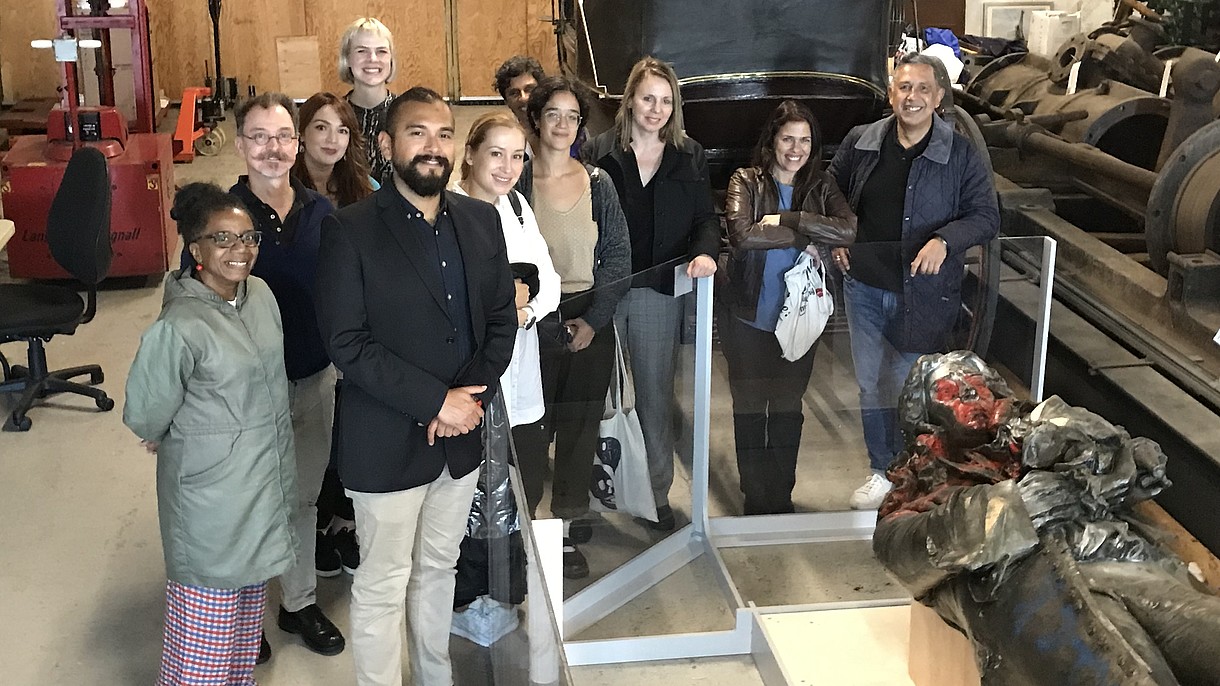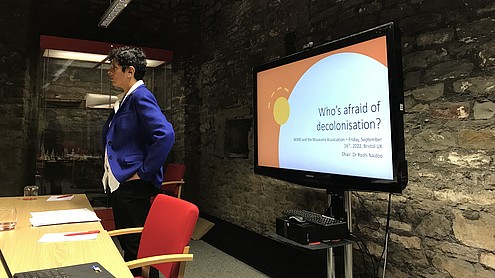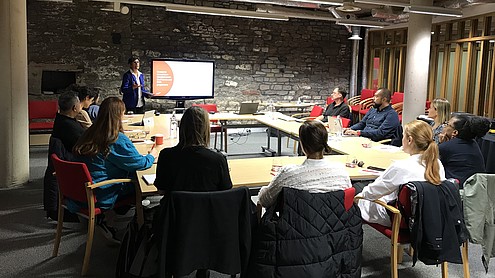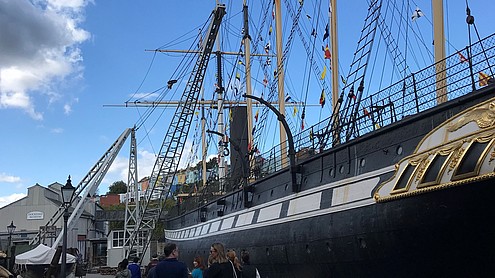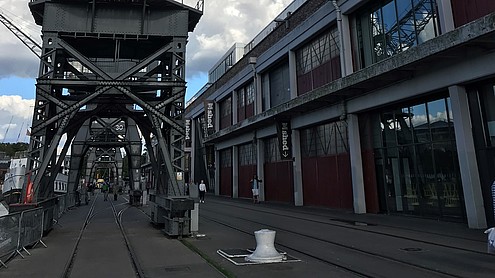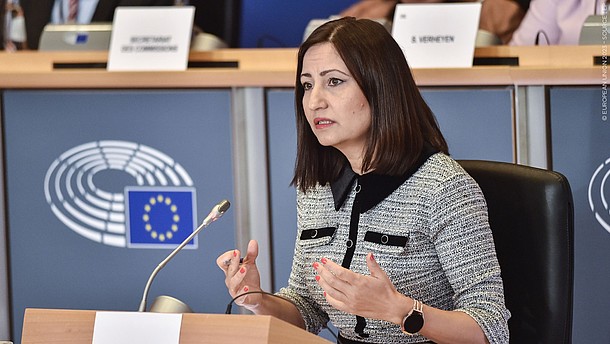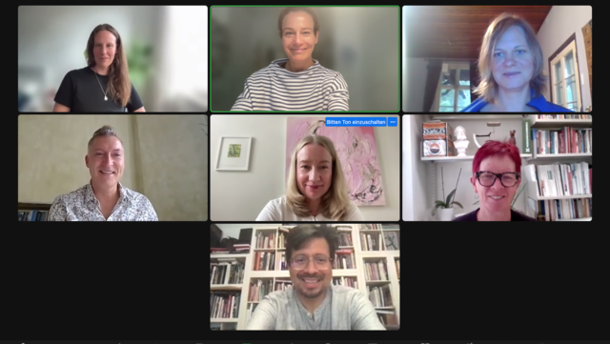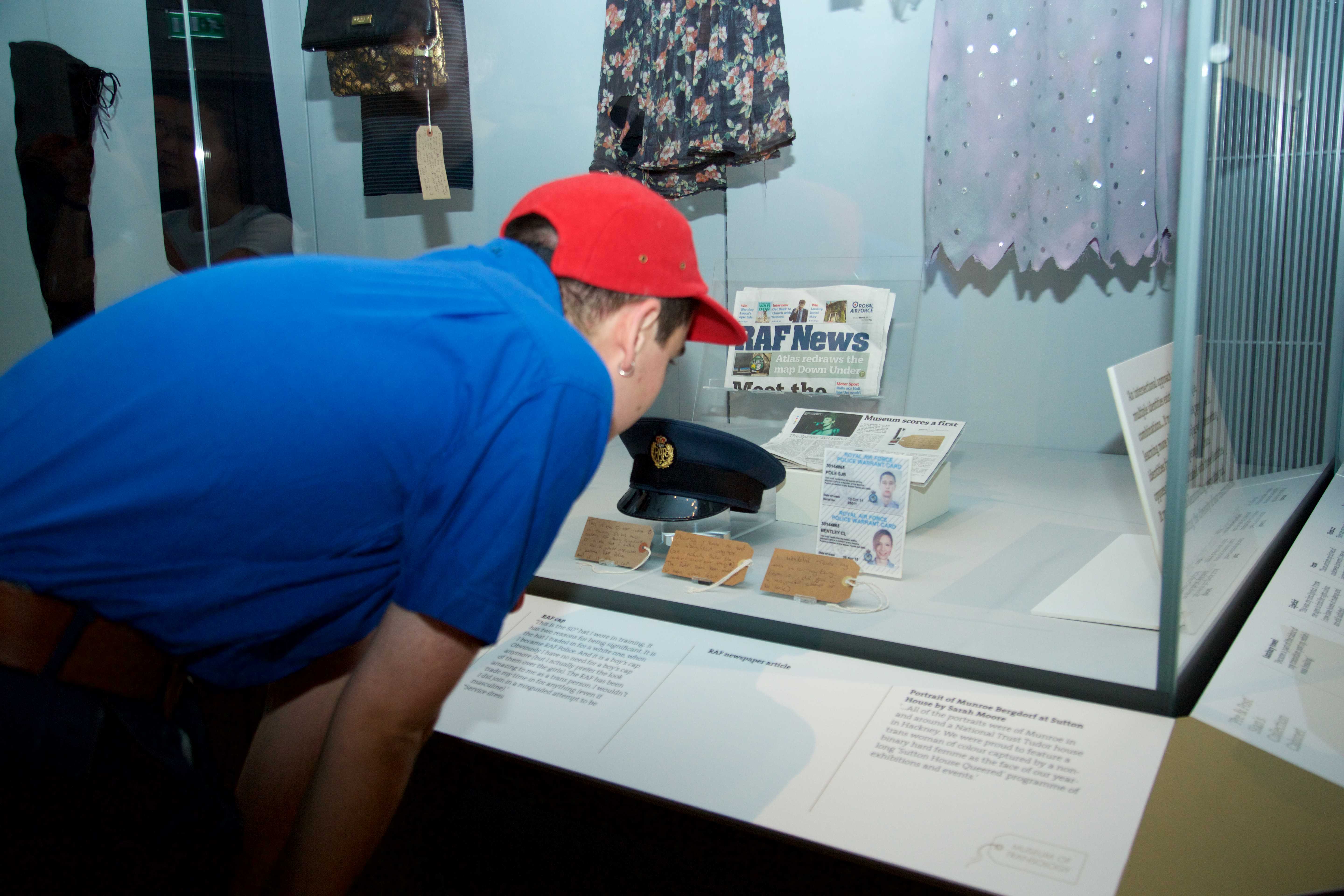Roshi opened the training by introducing some of the theories and practises relevant to decolonisation work. Decolonisation in museums can include everything from repatriation of objects, reframing objects and how they are catalogued to diversifying the museum work force. Museums are recommended to go slowly and make sure to do the groundwork properly and rethink what they think they know. After all, colonisation is not likely to be reversed quickly since it lasted for hundreds of years. To achieve long-lasting change, museums need to consider how to evaluate the impact of their work and do the “big thinking” before they start. Otherwise, this moment might pass like so many before. The topic has resurfaced in cycles of forgetting- remembering - forgetting, often following a major event that highlighted inequalities and racism. Roshi points out that decolonisation work was taking place since before 2020, but it became urgent with the Black Lives Matters movement. This time around, protests were, amongst others, highlighting on how heritage perpetuates racism which has made museums reflect on the role they play in upholding racism.
The participants in the NEMO Training got to discuss what decolonialisation in museums means to them and what kind of experience they already have. Their starting points ranged from just taking the first steps of incorporating decolonisation in their work and others had been doing it for decades without knowing the name of their work. Museums are inextricably bound up with the history of colonialism since the colonial gaze and idea of cataloguing gave meaning and shape to what was represented in the museum and shown to the public. In her lecture, Roshi recommended to not try to remove the feelings of discomfort that might arise when working with decolonisation or to oversimplify the matter since that would continue the colonial narrative.



